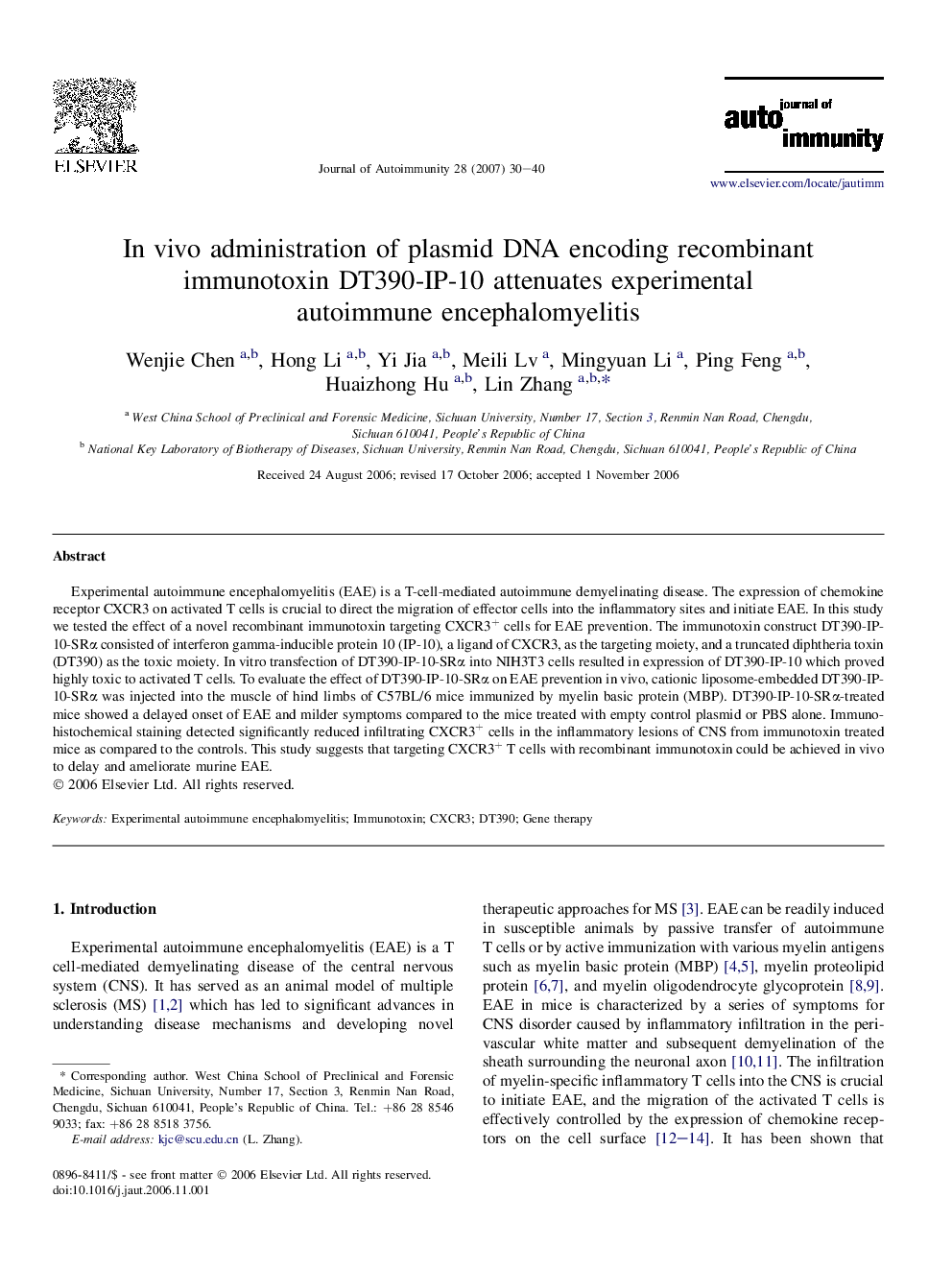| Article ID | Journal | Published Year | Pages | File Type |
|---|---|---|---|---|
| 3368542 | Journal of Autoimmunity | 2007 | 11 Pages |
Experimental autoimmune encephalomyelitis (EAE) is a T-cell-mediated autoimmune demyelinating disease. The expression of chemokine receptor CXCR3 on activated T cells is crucial to direct the migration of effector cells into the inflammatory sites and initiate EAE. In this study we tested the effect of a novel recombinant immunotoxin targeting CXCR3+ cells for EAE prevention. The immunotoxin construct DT390-IP-10-SRα consisted of interferon gamma-inducible protein 10 (IP-10), a ligand of CXCR3, as the targeting moiety, and a truncated diphtheria toxin (DT390) as the toxic moiety. In vitro transfection of DT390-IP-10-SRα into NIH3T3 cells resulted in expression of DT390-IP-10 which proved highly toxic to activated T cells. To evaluate the effect of DT390-IP-10-SRα on EAE prevention in vivo, cationic liposome-embedded DT390-IP-10-SRα was injected into the muscle of hind limbs of C57BL/6 mice immunized by myelin basic protein (MBP). DT390-IP-10-SRα-treated mice showed a delayed onset of EAE and milder symptoms compared to the mice treated with empty control plasmid or PBS alone. Immunohistochemical staining detected significantly reduced infiltrating CXCR3+ cells in the inflammatory lesions of CNS from immunotoxin treated mice as compared to the controls. This study suggests that targeting CXCR3+ T cells with recombinant immunotoxin could be achieved in vivo to delay and ameliorate murine EAE.
